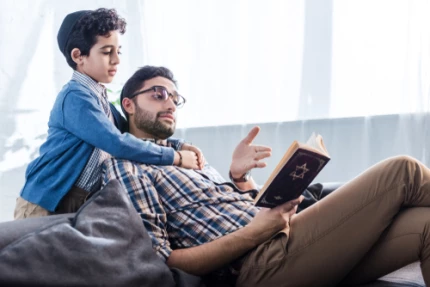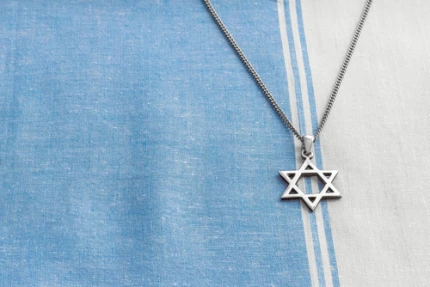What is giyur lechumra and why is it needed?
Giyur lechumra represents a unique and often misunderstood facet of Jewish religious practice. Unlike standard conversion processes that transform a non-Jew into a Jew, this procedure addresses individuals whose Jewish status is shrouded in doubt. It serves as a stringent halachic safeguard rather than an initiation. The term itself – combining “giyur” (conversion) and “chumra” (stringency) – reveals its core purpose: resolving ambiguities in Jewish lineage through an Orthodox framework. Within Israel’s religious bureaucracy, it functions as both a spiritual remedy and an administrative necessity, particularly for those navigating citizenship, marriage, or burial under Jewish law.
an Israeli citizenship specialist
What is giyur lechumra?
But the theological difference is in the motivation; it works under the principle of “chumra” and the candidate who will be tagged with the case of “safek yehudi” rather than “goyy”. This not-so-subtle emphasis moves us from transformation to affirmation. As one rabbi explains it, those doing lechumra are assumed to have already lived Jewishly; the process retroactively finishes what tradition regards as incomplete.
Why giyur lechumra is needed
The need for giyur lechumra is necessary due to the complex combination of state and religious law in Israel. For individuals, the unsettled Jewish status can lead to a domino effect of challenges:
- Marriage and Burial Rights. Only those with non-challengeableJewish status may marry in Israel’s Jewish community and be buried in Jewish graveyards under the jurisdiction of the Chief Rabbinate. Couples are forced overseas for weddings or families are pushed to rest in segregated gravesites – a deep emotional ache.
- Aliyahand Citizenship. The law of return has liberal rules for immigration, but the Rabbinate is what encompasses personal status. Other Olim from mixed communities (Ethiopian, Bene Israel) may be naturalized but then encounter issues in marriage registration as Jews – necessitating the legal fiction of giyur lechumra to reconcile national and religious registers.
- Military Service. Some soldiers in Israel’s army, especially non-Jewishrecruits or those of unknown backgrounds, seek fast-tracked conversion during their service. Without it, a fallen soldier could be refused burial next to comrades – a torment illustrated by a reservist who paid out of his pocket for his own circumcision to “die as a Jew”.
The problem is exacerbated structurally, by the Rabbinate’s inflexibility. Budget fights have frozen state-funded circumcisions for months, leaving adult converts stranded halfway through the process. And soldiers who returned from Gaza fighting had no state mohelim (circumcisers) ready for their children – so they paid thousands out of pocket to do a private one, leading Rabbi Shaul Farber to slam the move as “scandalous”. Meanwhile, groups like Ethiopian Jews reject lechumra as a betrayal of ancestral martyrdoms. This tension between institutional skepticism and personal belief is precisely what makes this process, controversial as it is, so important to the deeper fabric of Israel’s Jewish identity and faith.
The Giyur Lechumra Process
Unlike standard conversion, which involves extensive study (1–3 years) and rigorous examinations, giyur lechumra follows an accelerated path. Candidates typically bypass prolonged coursework if they demonstrate existing Jewish practice and knowledge. The procedure hinges on a beit din’s assessment of the candidate’s background and current observance. Rituals include: circumcisionor hatafat dam brit (symbolic blood draw) for men. Tvilah (immersion in a mikveh) for all candidates, performed under strict rabbinical supervision to ensure no barrier between skin and water.
The beit din focuses on resolving doubt rather than establishing new Jewish identity. Testimonies about family history, communal affiliation, and lifestyle often replace doctrinal exams. For example, Ethiopian Jews may present ancestral traditions, while others submit documentation of maternal lineage. The process typically concludes within weeks, not years, though timelines vary by rabbinical court.
Giyur Lechumra and the Law of Return
Israel’s Law of Return guarantees citizenship to Jews, but recognition hinges on the Chief Rabbinate’s approval. Giyur lechumra bridges this gap for those with contested status. Successfully converted individuals receive a certificate enabling:
- Aliyaheligibility and citizenship registration.
- Marriage under Orthodox law.
However, bureaucratic challenges persist. The Ministry of Interior may demand additional proof of Jewish practice post-conversion, especially for olim from communities like the Bene Israel or Ethiopian Jews. Soldiers in the IDF often undergo expedited lechumra to ensure burial rights, yet state-funded circumcisions face delays due to budget disputes – forcing some to pay thousands privately. Politically, tensions arise when private beit din conversions (e.g., Ahavat HaGer) face non-recognition, requiring litigation for validation.
Controversies Surrounding Giyur Lechumra
While traditional halacha treats giyur lechumra as a chumra (stringency) to resolve ambiguities, some rabbinical courts now misuse it to override past conversions performed by rival institutions. A prominent case involves Israel’s Chief Rabbinate retroactively invalidating Orthodox conversions from diaspora courts like Young Israel, forcing candidates into redundant rituals. This “re-conversion” mindset dangerously implies initial conversions were void – a notion Rabbi Yuter condemns as “anti-halachic and unethical”. Such practices also risk cascading scrutiny: children of those undergoing lechumra may face renewed doubts about their status, perpetuating cycles of alienation.
Identity, Trauma, and Emotional Dimensions
For many, giyur lechumra transcends procedure, triggering profound identity crises. Individuals raised Jewish often describe the process as a spiritual betrayal. One woman, “Yiddishemishpacha,” recounts how baseless rumors about her Polish grandmother’s non-Jewish roots nearly derailed her marriage. Though old photos ultimately confirmed her Jewish lineage, the year-long limbo – attending conversion classes while identifying as Jewish – left lasting scars: “I took my Jewishness for granted until I had to fight for it”. Soldiers in the IDF face parallel struggles; those completing expedited lechumra during service report anxiety about posthumous burial rights, with one reservist funding his own circumcision to “die as a Jew”.
Ethiopian and Bene Israel communities uniquely resist lechumra, viewing it as an erasure of ancestral martyrdom. Beta Israel Jews, recognized as Jewish by Rabbi Ovadia Yosef in 1976, still encounter rabbinical demands for “confirmation” conversions upon immigrating to Israel. Many refuse, citing centuries of Torah observance and pogroms endured as Jews. This friction highlights a core tension: giyur lechumra prioritizes institutional certainty over lived identity, forcing candidates to choose between communal acceptance and personal dignity. As one convert lamented, undergoing a second mikveh immersion “felt like mourning the self I’d always been”.
Practical Aspects of Giyur Lechumra
Candidates navigate delicate social and procedural nuances:
- Many opt for discreet processes to avoid stigmatizing families. Beit din letters may specify that the procedure does not invalidate relatives’ Jewishness.
- State-subsidized conversions are free, but private courts charge fees. Emergency cases (e.g., impending marriage) incur higher costs for expedited reviews.
- Community Resistance.Ethiopian Jews may view lechumra as an insult to ancestral martyrdoms. Others resent perceived institutional doubt, leading to emotional strain.
Post-conversion, individuals face ongoing scrutiny. The Rabbinate may demand renewed verification for marriage registration, and cemeteries occasionally challenge burial rights. Legal assistance is advised to preempt these hurdles – particularly when selecting courts recognized by the Ministry of Interior.
FAQ
Most Orthodox communities globally accept it, but Conservative/Reform movements may not.
No. Beit din documents often clarify it addresses personal doubt, not familial status.
Yes, the conversion certificate permits marriage under Israeli law, though some rabbis recommend a brief waiting period.
Minors undergo simplified giyur alongside parents, focusing on immersion without examinations.
Some rabbinate factions require lechumra if the initial beit din lacked “sufficient stringency”.
IDF personnel receive priority but still face bureaucratic delays for ritual logistics.
No – hatafat dam brit remains mandatory for men.
Indefinitely, but the Ministry of Interior may request updates if doubt resurfaces later.
Optional. A Hebrew name is assigned during tvila but legal names remain unchanged.
Rarely. Employers lack access to religious records, and communities typically respect the beit din’s ruling.
Testimonies from family or community members often suffice, alongside evidence of lifelong Jewish practice like synagogue membership or lifecycle event records.
Yes, through Orthodox beit din networks like the RCA (Rabbinical Council of America), but Israel’s Chief Rabbinate may still review the case independently.
No, but minors require parental consent. Adults over 75 may face additional scrutiny regarding kabbalat mitzvot (accepting commandments).
Organizations like ITIM offer counseling, while some rabbis provide pastoral guidance to navigate identity challenges.
Not universally. Sephardic and Ashkenazi communities may apply distinct standards, potentially requiring local verification.
an Israeli citizenship specialist

